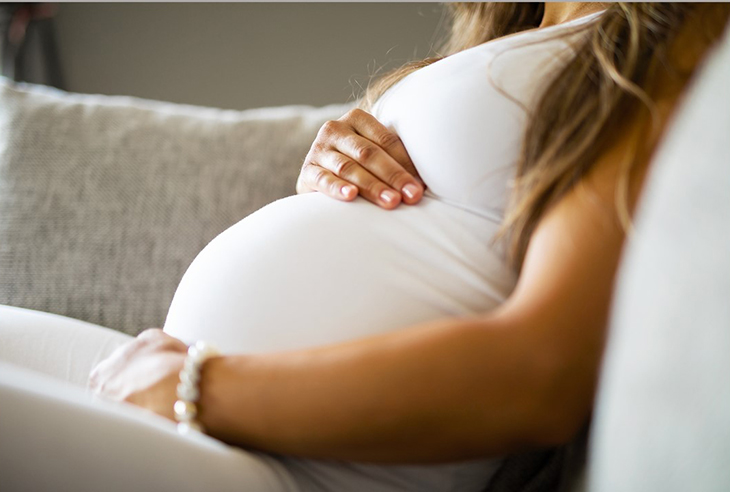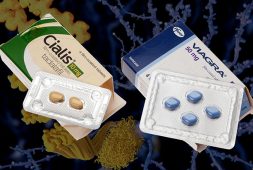
Perinatal and postpartum depression affect up to 20 percent of women in the United States. A recent study reveals that those who experience depression during pregnancy or within a year postpartum are six times more likely to die prematurely, with suicide being the primary cause. Published on January 10 in the BMJ, the study underscores the heightened risk of mortality for women facing perinatal and postpartum depression, with suicide being the leading contributor to early deaths.
“Our study found that a diagnosis of perinatal depression — that is, depression occurring during pregnancy or in the year after delivery — was associated with an increased risk of death, independent of preexisting psychiatric illness, compared with women without this diagnosis,” said lead author Qing Shen, PhD, a researcher at the school of medicine at Tongji University in Shanghai, China. The increased risk was also at its peak during the first year after the women were diagnosed, and the numbers remained high up to 18 years later, Dr. Shen added.
Given these findings, women diagnosed with or at risk of perinatal depression, their families, and health professionals must come together in order to enhance early detection and get treatment, Shen stated. “It is important to use available tools, such as the postpartum questionnaire, to screen the symptoms of postpartum depression, if available,” she added.
Perinatal Depression Affects Up to 1 in 5 Women in the U.S.
According to a 2020 review in the Cleveland Clinic Journal of Medicine, perinatal depression impacts between 10 to 20 percent of women in the United States during pregnancy, postpartum, or both. Women experiencing perinatal depression often endure profound sadness and anxiety, making it challenging to connect with or nurse their infant. In severe cases, individuals may even contemplate or enact harm upon themselves or their child.
It’s important to differentiate perinatal depression from the transient “postpartum blues,” characterized by mood swings, fatigue, tearfulness, irritability, and anxiety, which typically resolve within two weeks following childbirth, as per research findings.
Women With Perinatal Depression are 3 Times More Likely to Die During Study
Utilizing data spanning from 2001 to 2018 from a Swedish national registry, researchers pinpointed over 86,000 instances of perinatal depression among women experiencing it for the first time. They then paired these women with 865,510 unaffected counterparts, maintaining a ratio of 10 control subjects for every woman with perinatal depression, based on age and delivery year.
On average, women diagnosed with perinatal depression were 31 years old. They exhibited lower likelihoods of cohabiting with the child’s father, and higher probabilities of possessing lower educational attainment and household income, being overweight or obese, smoking tobacco, and having preexisting psychiatric conditions compared to their counterparts without perinatal depression.
To isolate the impact of perinatal depression, researchers adjusted for various established risk factors associated with depression and premature mortality, such as income, education, and preexisting psychiatric conditions.
Over the 18-year observational period, there were 522 deaths (0.82 per 1,000 person-years) among women with perinatal depression, in contrast to 1,568 deaths (0.26 per 1,000 person-years) among women without this diagnosis. This indicates that women with perinatal depression faced over three times the risk of mortality compared to matched women without the condition.
Even after accounting for pregnancy-related factors, women with perinatal depression were still more than twice as likely to die as those without the condition.
While suicides were infrequent (0.23 per 1,000 person-years), they constituted more than a quarter of deaths among women with perinatal depression. Notably, these women were over six times more likely to die by suicide and three times more likely to die from accidents compared to those without perinatal depression.
The heightened risk was most pronounced within the first year following diagnosis, although it gradually declined over time, persisting at elevated levels throughout the 18-year study duration.
Sisters Studied In Order to Control Genetic and Environmental Factors
Researchers analyzed information from over 20,000 women experiencing perinatal depression and contrasted it with their biological full sisters who did not undergo perinatal depression but gave birth during the same period. They found that women with perinatal depression were nearly three times more likely to exhibit suicidal behavior compared to their sisters. This led the researchers to suggest that depression is a more significant factor in these outcomes than genetics or early environment.
Depression Can Increase Risk of Death Aside from Suicide
Dr. Emily Harville, a perinatal epidemiologist at Tulane University’s School of Public Health and Tropical Medicine in New Orleans, remarked that the heightened risk of mortality observed in women with perinatal depression is regrettably not unexpected, given the established link between depression and suicide.
Several other causes of death are probably associated with depression as well, Dr. Harville added. She, however, who was not involved in the study. “People with health problems are more likely to be depressed. Those who are depressed may be less likely to manage health conditions well. Those with depression may be more likely to injure themselves accidentally, such as not having full attention during driving, for instance. And some social factors, like partner violence, would also be associated with depression,” Harville said.
Study Strengths and Limitations
This study boasts significant advantages, chiefly stemming from its extensive sample size and the meticulous organization of registries. As a result, follow-up procedures are exceptionally thorough, and exposure is consistently measured across the entire population.
“That said, [the researchers] are limited to what is recorded routinely — many cases of [perinatal] depression are probably not diagnosed or medicated — and the Swedish population and social context is quite different from many other countries, including the United States,” said Harville. “This study probably captures the most severe cases of depression, as well as those who are regularly seeking healthcare, so those with chronic diseases may be particularly likely to have depression diagnosed,” said Harville. It’s likely the associations found here would not be as strong, and maybe wouldn’t exist at all, for those suffering from mild depression, she also said.
“It is interesting that they find this relationship even in a country with a strong social safety net, where lack of access to healthcare, for instance, would presumably not be a major factor,” Harville said.
The authors noted several constraints in the study. Since it was observational, the results merely indicate an association between perinatal depression and a higher mortality risk—it does not establish a direct causation.
Furthermore, the study solely enrolled women who sought specialized treatment for their depression, potentially leading to misclassification of some suicides as accidents. Lastly, despite researchers accounting for various factors, including familial ones, they cannot dismiss the likelihood of other undisclosed or unmeasured variables impacting their findings.
Hopefully these findings will improve awareness and give women a push to seek out the care they need, said Harville. “Mental health should be viewed as part of a picture of the overall circumstances of a woman’s life, including her physical health and life circumstances. Mental health can affect physical health, and vice versa,” she said.
Perinatal Depression Highly Treatable
Great news! According to Adele Viguera, MD, Associate Director of the Perinatal and Reproductive Psychiatry Program at Cleveland Clinic in Ohio, postpartum depression is a highly treatable illness. Dr. Viguera, who wasn’t part of the study, shared this encouraging insight.
The first step usually requires obtaining a diagnosis of postpartum mood disturbances through a screening process, which then is followed by a referral to an expert in this area, said Dr. Viguera. “Treatment typically involves a combination of medications, talk therapy, support from family members, and community support services,” she explained.
Viguera mentioned that medications like selective serotonin reuptake inhibitors (SSRIs) and serotonin-norepinephrine reuptake inhibitors (SNRIs) are frequently recommended to assist in symptom management and mood regulation for individuals dealing with depression.
“An exciting development in the treatment of postpartum depression is the recent release of the first-ever [U.S. Food and Drug Administration] FDA-approved antidepressant indicated for postpartum depression called Zurzuvae (zuranolone),” said Viguera.
In contrast to conventional antidepressants, which often require weeks to show efficacy and prolonged usage, zuranolone stands out as the pioneering rapid-acting oral treatment designed for moderate to severe postpartum depression. Clinical trials indicate its effectiveness as early as day 3, marking a significant advancement in addressing this condition.
“Psychotherapy can also be very helpful. For example, cognitive behavioral therapy helps identify and change negative thought patterns or interpersonal therapy focuses on improving communication and relationships. Also, group therapy connects women facing similar struggles,” said Viguera.
Lifestyle can also make a difference, she advised. “Getting adequate sleep, eating healthy foods, exercising, and joining support groups are very important components to recovery, as is having a strong support system. Partners, family, and friends can provide emotional support and practical help to alleviate stress,” said Viguera.
Available Helplines and Other Free Resources
If you’re experiencing perinatal depression or any form of depression and are grappling with thoughts of suicide, reach out for help. The Suicide and Crisis Lifeline at 988 offers free access to trained crisis counselors who can provide support and connect you with further assistance. If you’re deaf or hard of hearing, you can use your preferred relay service or dial 711 followed by 988.
Additionally, you can contact the National Maternal Mental Health Hotline at 833-TLC-MAMA (833-852-6262) anytime for free access to professional counselors. Again, if you’re deaf or hard of hearing, you can use your preferred relay service or dial 711 followed by 833-852-6262.
For information, resources, and support groups related to postpartum depression (PPD) for women, partners, and supporters, simply call or text “Help” to the Postpartum Support International helpline at 800-944-4773.



